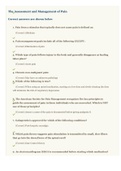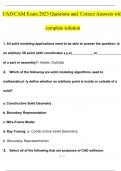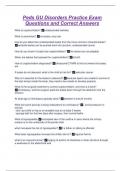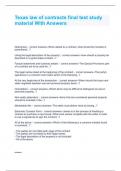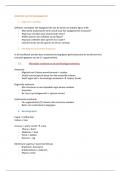Exam (elaborations)
CEUFast - Test Results_ The Assessment and Management of Pain-2
- Course
- CEUFast
- Institution
- Chamberlain College Of Nursing
CEUFast - Test Results_ The Assessment and Management of Pain-2 1. Pain from a stimulus that typically does not cause pain is defined as: (Correct) Allodynia 2. Pain management goals include all of the following EXCEPT: (Correct) Elimination of pain 3. Which type of pain follows injury to the ...
[Show more]
